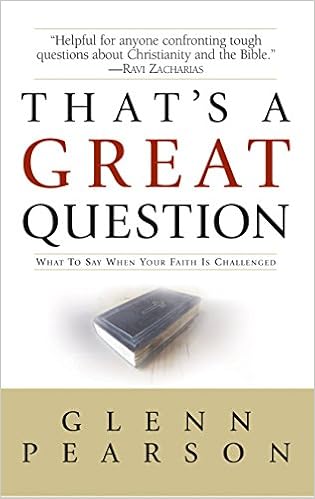 A couple of months ago Arkansas’ Secretary of State rejected the request from the Universal Society of Hinduism to erect a statue on state capitol grounds.
A couple of months ago Arkansas’ Secretary of State rejected the request from the Universal Society of Hinduism to erect a statue on state capitol grounds.
A good friend from college, himself a Hindu, sent me an email asking me what I thought about it. What could I say? It seemed patiently unfair: Arkansas had approved a monument for the Ten Commandments on state grounds, but rejected the Hindu organization’s privately funded statue. I commiserated with my friend, saying only that I thought it was the sign of a people—Arkansas Christians in general—who feel increasingly under attack by secularists.
My friend was incredulous. Christians feel like they are under attack? They are paranoid and delusional, he declared. They are the clear majority in this country. I tried to explain that, while this may be true, there are plenty of examples of Christianity’s diminishing influence in the public sphere: a Pew study that found a large increase in secularism, a cultural and political shift away from Christian marriage and family values, recent healthcare legislation that has forced religious groups to go to court to defend their freedom of conscience.
It wasn’t long before we were debating religious liberty in general and I found myself in the unenviable position of trying to explain why I think that Americans ought to try an tolerate the views of religious groups—even those views that we may find personally distasteful. Why, my friend asked, should we try to protect those who promote ideas that we think are wrong? That’s a good question, I found myself saying.
The whole exchange brought to mind a book by Glenn Pearson, That’s a Great Question. Pearson, who spent a career in hospital administration, has an ambitious goal: to defend his faith against the particularly difficult criticisms of contemporary intellectuals. Pearson, like me, is a product of modern Enlightenment thinking and reconciling the worldview of his favorite university professors and public intellectuals with his Christian faith is a project that has taken him most of his life.
As the title of his book suggests, Pearson endeavors to defend the faith as much through affirmation as through refutation. In many ways, I think this is precisely what was missing from my exchange with my Hindu buddy and, more broadly, in conversations I have witnessed between Christians and their secular critics. All too often we find ourselves arguing in circles, or worse, in a debate where Christians and non-Christians seem to be talking past each other.
Pearson takes a systematic approach to Christian apologetics. He begins the book by exploring the idea that we all have “filters” or preconceptions that color our reading of the Bible. Pearson believes the Bible is God’s inspired, inerrant, and infallible revelation and asserts that “filters” either add or subtract from the faith in ways that pervert and obfuscate the truth. Peppered with specific examples, Pearson defends orthodox Christian thought from the criticisms lodged by secular intellectual luminaries like Bertrand Russell and Daniel Dennett as well as the progressive theologians like Robert Funk, Randel Helms, and Episcopal Bishop John Shelby Spong. Most of the book, in fact, is dedicated to meticulously reiterating criticisms of orthodox Christianity and gently refuting them.
It is clear that Pearson is sympathetic to critics—and perhaps this is because in his early adult life he, too, was a detractor. As a former secular humanist myself—and someone whose best friends are agnostics or atheists—I appreciated this kind approach to those who are critical of Christianity.
But Pearson does not just refute atheists and liberal theologians, he also devotes a significant portion of his book detailing what he sees as an equally necessary project: how does a modern, educated thinker reconcile Enlightenment thinking with some of the more “puzzling, perplexing, and problematic passages” in the Bible. He outlines eighteen principles for reading the Bible that will help modern intellectuals. Among these principles are the following: think outside the box, consider the writer’s unique purpose, remember that discrepancies can be good, and—what I think is the best principle—“recognize the difference between paradox and contradiction.”
Paradoxes abound in the Bible and Pearson finds comfort in them. Paradoxes are not necessarily contradictions—to Pearson they demonstrate the limits of his understanding and the much greater significance of his God. Pearson, who is fond of illustrating Biblical criticism using long passages of the Bible, cites the famous verses from Matthew including, “Whoever finds his life shall lose it, and whoever loses his life for my sake will find it” and “Many who are first will be last, and many who are last will be first.” At first glance, these verses do not make much sense.
“Fortunately, most readers recognize them for what they are,” Pearson writes, “statements that teach truths that, at first seem self-contradictory, but that call attention to a higher truth by the use of contrast.”
This isn’t a book you should pass on to your secular friends, though. Although Pearson quotes CS Lewis extensively, he is engaged in a much different project than Lewis. He is writing not to critics of Christianity, but to Christians that find themselves in the position of defending their faith to modern intellectuals. Pearson is unquestionably an ardent, Evangelical Christian, with a deep appreciation for orthodoxy, but he is also an intellectual with a deep appreciation for modern Enlightenment thinking. It is worth the read if you often find yourself searching examples of winsome Christian defense in the midst of today’s rising secularism.

